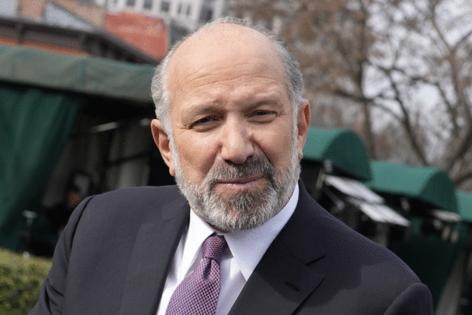Tariffs challengers cite Trump administration officials' own words
Published in Political News
WASHINGTON — A group of states and companies used the Trump administration’s own statements against them while urging a federal appeals court to pause the sweeping new tariffs on dozens of countries.
The Thursday filings at the U.S. Court of Appeals for the Federal Circuit come as the Trump administration seeks to keep the tariffs in place while a challenge to their legality plays out in the courts.
The Trump administration has told that appeals court that there are irreparable national security and economic harms from a lower court ruling, which found the tariffs exceed a president’s power under the International Emergency Economic Powers Act of 1977 and blocked them. The lower-court ruling covered certain tariffs on Canada, Mexico and China and the minimum 10 percent worldwide tariffs as well as higher country-specific tariffs scheduled for the summer.
But the states challenging the tariffs told the appeals court in a filing that, while the Justice Department initially said the lower court ruling threatens ongoing trade negotiations, Trump officials have “publicly contradicted those claims” since the initial loss in the lower court.
Among them, Kevin Hassett, the director of the National Economic Council, said that the ruling is “certainly not going to affect the negotiations” over trade deals because “there are three or four other ways” to impose tariffs other than IEEPA, the states wrote.
Peter Navarro, the president’s senior counselor for trade and manufacturing, said the deals are going to happen and that the administration is “still, as we speak, having countries call us and tell us they want a deal,” the states wrote.
And Commerce Secretary Howard Lutnick acknowledged that it “maybe cost us a week— but then everybody came right back to the table,” the filing states.
“Thus, this Court should not credit defendants’ assertions about the need for a stay to protect national security and the economy,” the states, including Arizona, Colorado, Connecticut, Delaware, Illinois, Maine, Minnesota, Nevada, New Mexico, New York, Oregon and Vermont, argued.
Similarly, the group of companies who challenged the tariffs argued in a court filing that Trump should not be able to continue to impose tariffs that are likely unlawful in part because he would be further along in negotiations with more countries.
“U.S. credibility would then suffer still greater damage,” the filing states. “Better to end the travesty as soon as possible.”
Further, the companies’ filing pointed out that “foreign leaders and their negotiators can read” and that Trump cannot hide the fact that a court undercut his leverage with the IEEPA tariffs by finding they likely violated the law.
“And the President’s claim that the ability to unilaterally impose tariffs is necessary to conduct foreign affairs and manage national security is belied by the fact that no previous president has ever claimed or used it,” the filing said.
The administration has argued that Trump’s tariffs fall within the bounds of the law, which is meant to address emergencies, and will shore up his ability to negotiate new trade agreements. At the court, the Trump administration has asked to be able to continue imposing the duties and levy the new ones in July.
Last month, a three-judge panel of the U.S. Court of International Trade found the tariffs likely exceeded Trump’s authority and blocked them. The Federal Circuit issued a temporary administrative halt to the lower court order, at least while the appellate court more fully considers the administration’s emergency request to block the lower court order as it pursues an appeal.
The Trump administration is scheduled to reply to the state and company arguments by Monday, which could mean a ruling as early as next week on whether the tariffs may take effect.
The combined case in the Federal Circuit is separate from litigation brought by California challenging the tariffs. The cases are State of Oregon et al. v. the Department of Homeland Security et al., and V.O.S. Selections et al. v. United States et al.
_____
©2025 CQ-Roll Call, Inc., All Rights Reserved. Visit cqrollcall.com. Distributed by Tribune Content Agency, LLC.

























































Comments